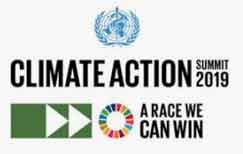The reality is that the annual UN Climate summits rarely accomplish much, even the 2015 conclave in Paris that supposedly delivered a global accord to reduce CO2 emissions.
It hasn’t done that, of course, and the reality is that after now 25 UN summits, global CO2 emissions continue to rise almost every year except those having big economic downturns, such 2009.
This year’s summit in Madrid accomplished little, but as always was full of rhetoric.
The final event text stated that the summit “re-emphasizes with serious concern the urgent need to address the significant gap between the aggregate effect of Parties’ mitigation efforts in terms of global annual emissions of greenhouse gases by 2020.” It also stressed “the urgency of enhanced ambition in order to ensure the highest possible mitigation and adaptation efforts by all Parties.”
The longest ever summit ran two days over its already elongated schedule, trying to again at least elicit ever firmer resolve to do something soon, after failing to reach agreements on several key issues.
Those issues include:
Upping emissions commitments from those made in 2015: The 2015 Paris accord included country pledges that supposedly were enough – if achieved – to keep global temperatures increases below the 1.5 degrees C target set by the UN.
Despite or maybe because of the failure of most countries to meet the unmeasurable and unenforceable reduction targets since then, there were hopes even stronger reduction commitments would be made this year, but that didn’t happen.
 Reparations from richer countries to poorer ones: This has been a contentious issue since it was first considered, with the basic idea that wealthy countries that have created most of the historic carbon emissions should send billions of dollars to poorer ones to help the address damage from warming and more quickly transition themselves to a low carbon economy. Reparations from richer countries to poorer ones: This has been a contentious issue since it was first considered, with the basic idea that wealthy countries that have created most of the historic carbon emissions should send billions of dollars to poorer ones to help the address damage from warming and more quickly transition themselves to a low carbon economy.
While some payments were made a few years back from a handful of developed economies, even among Euro countries there is little appetite for significant on-going payments into some fund, and many questions about how the money would be allocated and actually then used in the receiving countries (e.g, into the bank accounts of country rulers).
At one point, China, the world’s largest emitter of CO2, argued it should be eligible to receive some of those reparation payments as a developing country.
The 2015 Paris accord included an agreement to create a fund of an incredible $100 billion annually to be used for reparations, which almost certainly is not going to materialize any time soon, especially with the US declining to participate in the fund.
Rules around a global carbon market: Some believe a cap and trade type market should be created globally, in which countries themselves would buy and sell carbon permits against emission targets to be calculated by some to be determined mechanism.
Where the proceeds from such a program would go is far from clear.
The summit participants were again unable to come to an agreement on these so-called Article 6 rules relative to such an exchange, deferring a decision again until next year, with a number of countries against the program.
Environmentalists were quite unhappy with what in effect was a non-event.
For example, Greenpeace executive director Jennifer Morgan called it “totally unacceptable,” adding that “decision-makers now need to go home, regroup and think about how to move forward as we head into a critical 2020.”
Added Mohamed Adow, director of Power Shift Africa, a climate and energy think-tank in Nairobi: “At a time when scientists are queuing up to warn about terrifying consequences if emissions keep rising, and school children are taking to the streets in their millions, what we have here in Madrid is a betrayal of people across the world.”
So, the can has been kicked down the road again on almost every issue for the 2020 UN summit in Glasgow, Scotland.
What is your reaction to the lack of action from the December UN climate summit? Let us know your thoughts at the Feedback button below.

|